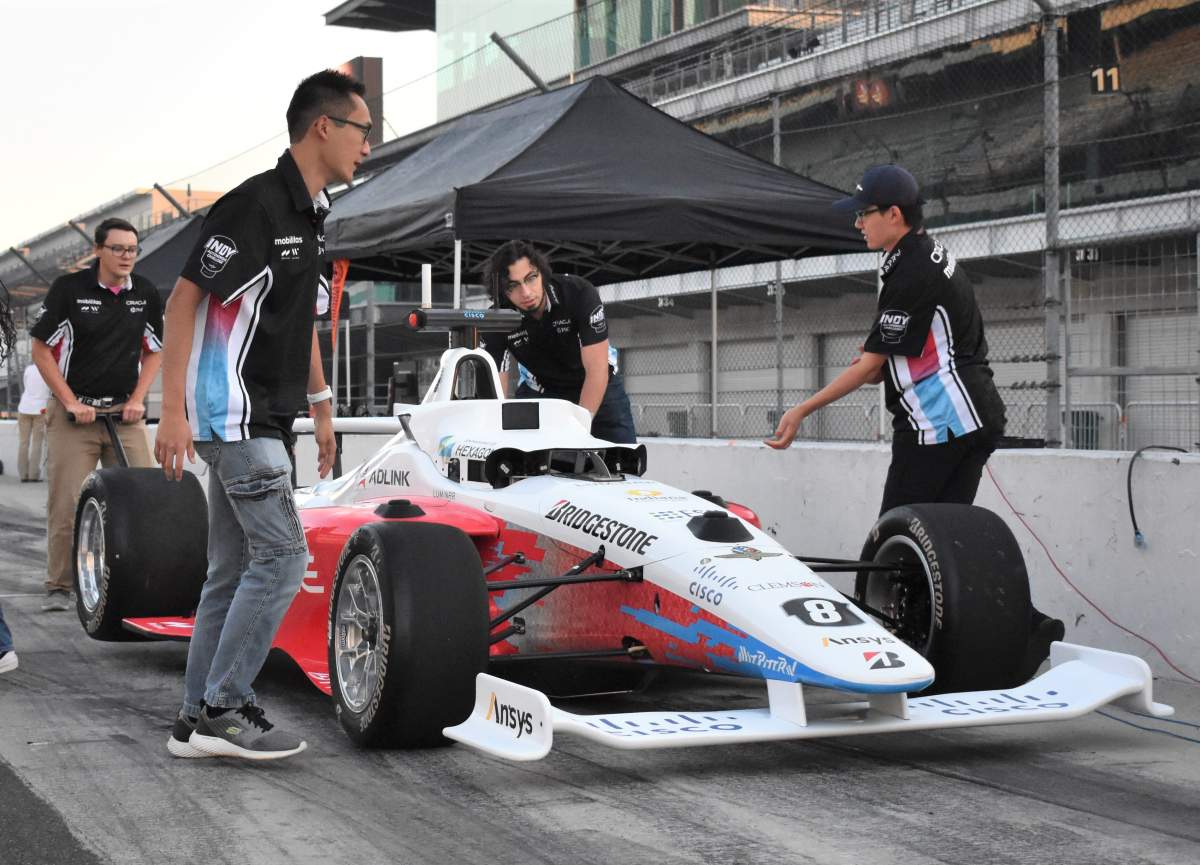The University of Waterloo says two students will be part of a team chasing the US$1-million top prize at the Indy Autonomous Challenge on Saturday.

The school says Brian Mao and Ben Zhang are part of a team made of students from four schools across the continent which helped to develop an autonomous, million-dollar racecar which they are hoping will reach speeds of up to 190 km/h at the Indianapolis Motor Speedway.
“This is something nobody else has done before — take autonomous vehicles up to those kinds of speeds,” said Mao, 23, of Newmarket.
“There are a lot of unsolved problems that have to be tackled.”
Waterloo says 10 teams from 21 schools comprised of students from nine countries have been working to prepare modified Dallara AV-21 racecars for this competition since 2019.
“The only control we have is an emergency button,” said Zhang, 24, of Vancouver.

The pair from Waterloo have been in Indianapolis for about six weeks, adding Waterloo’s software into the actual racecar, which was also pieced together by students from M.I.T., the University of Pittsburgh and the Rochester Institute of Technology.

Get daily National news
“Honestly, it’s amazing just seeing it in person,” Mao said of the speedway.
“The track is so big that after the first turn, we won’t even be able to see our car. We have to watch it on several monitors.”
Waterloo initially had plans for its own racecar but eventually joined forces with the three American schools to pool resources.
The team’s race car was one of just four that did not crash during a simulation in June.
“We are confident it will go around the track at high speed,” Zhang said. “We have tested it multiple times. What we’re still a bit unsure of is its obstacle avoidance manoeuvre.”

They had initially planned for the car to travel at speeds of up to 290 km/h but safety concerns caused them to scuttle those plans.
“We’re both nervous and excited at the same time because we’ve put in so much time and care so much about this,” Mao said.
“We really want to make sure we don’t crash the car.”








Comments